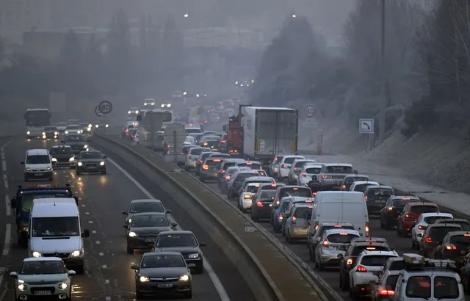Tools to support renewable energy in the transport sector
September 2022
The development of renewable energies is supported by the State in the areas of research and development, industry and private households. In the transport sector, a number of tools have been put in place to encourage users to make the transition and usher in the « post-oil » era.

General Tax on Polluting Activities (TGAP) for biofuels
The TGAP is designed to encourage the incorporation and distribution of biofuels by penalising operators who release for consumption a proportion of biofuels below the set threshold.
The rate of the TGAP has been set at 7% of energy for diesel and petrol since 2010. Since 2014, this rate has been raised to 7.7% for diesel and maintained at 7% for petrol.
For the purposes of calculating the TGAP, this rate is reduced in proportion to the volumes of biofuels incorporated into fuels placed on the market.
Tax exemption for biofuels enabled the development of production units, but ended in 2015
Between 2005 and 2015, a partial exemption from domestic consumption tax (TIC) was introduced to reduce the additional cost of manufacturing biofuels (from approved units) compared with fossil fuels.
The tax exemption for biofuels came to an end on 31 December 2015, by which time all the biofuel production sites that had benefited from this scheme will have been written off.
Cost of supporting biofuels
A report by the French Court of Auditors in February 2016 concludes that the policy of supporting biofuels remains the main instrument for achieving the EU target of 10% renewable energy in transport by 2020.
The only incentive for the incorporation of biofuels today is the high penalty levied by the general tax on polluting activities (TGAP). The amount of the penalties borne by operators who fail to meet their annual biofuel incorporation targets is allocated to the general budget.
Historically, from 2005 to 2015, the TGAP incentive was supplemented by the partial exemption from domestic consumption tax (TIC). The partial exemption from the TIC, passed on by distributors to producers, resulted in a loss of revenue for the State of €3.5 billion between 2005 and 2015. For 2015, this amounted to €97.5m.
The policy of supporting biofuels results in direct additional costs for consumers and indirect additional revenue for the State.
For consumers:
-
The lower calorific value (LCV) of biofuels results in higher fuel consumption.
-
The additional cost of biofuels and the possible passing on of the TGAP paid by distributors will lead to an increase in the price per litre of fuel.
For the State:
-
The extra consumption leads to additional tax revenue (TIC and VAT).
Encouraging the development of bioNGV
In addition to support for the biomethane sector, an incentive framework has been put in place to encourage the use of biomethane in the transport sector (biomethane used as fuel is called bioGNV),
Under the current framework, buyers of biomethane can recover guarantees of origin for the biomethane they produce and benefit from a support scheme. These guarantees of origin certify that the gas sold and injected into the network is of renewable origin. These guarantees of origin are recorded in a national register.
As a general rule, in the event of financial recovery of the guarantees of origin resulting from the production of biomethane benefiting from a support scheme, the purchasers of biomethane are required to pay back 75% of the revenue they earn from the sale of these guarantees of origin, with this recovery being deducted from the gas public service charges. However, if the biomethane is used as a fuel, buyers will be able to keep the full financial value of these guarantees of origin.
Encouraging the development of electric vehicles
To encourage the development of vehicles that emit less CO2, a bonus-malus system (link to dedicated sheet) has been introduced to reward, via a bonus, buyers of new cars that emit the least CO2, and to penalise, via a malus, those who opt for the most polluting models. In addition, since 1 April 2015, a conversion bonus of up to €10,000 has been available for the purchase of an electric vehicle accompanied by the scrapping of a diesel vehicle. The scheme will be extended in 2016.
Encouraging the development of hydrogen-powered vehicles
Hydrogen-powered electric vehicles are a clean mobility solution. As a complement to battery electric vehicles for certain uses, they benefit, like all electric vehicles, from the aforementioned tax incentive. The development of hydrogen mobility is still in the early stages of industrial deployment, but it offers significant advantages: it can be recharged in a very short time (less than 5 minutes) and has a greater range than battery electric vehicles. France has transposed the optional part devoted to hydrogen into the national action framework for alternative fuels and has set itself a target of 30 to 50 recharging stations by 2025, with the possibility of revising this target in 2019 depending on market conditions.